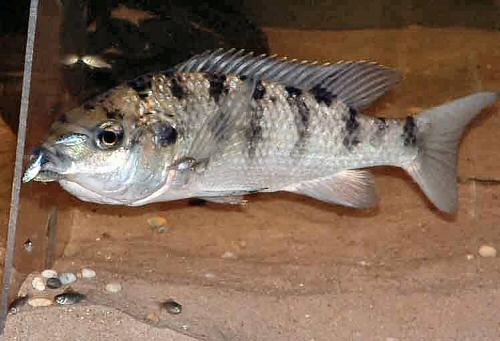A fisherman in Mbeya region died on Tuesday morning after a fish he had just caught jumped into his mouth, “swam down his throat and choked him to death.
Eyewitnesses identified the deceased as Robert Mwaijega (47) of Kanga village in Ipinda ward, Kyela district who was fishing in one of the rivers that flow into Lake Nyasa-the southernmost lake in the east African Rift valley that is shared by Tanzania, Malawi and Mozambique.
According to Emmanuel Mwammgunda who was part of the group of fisherman accompanying Mwaijega, they had just caught perege type of fish which was still alive and flip-flopping in the basin when one of them suddenly jumped all the way into Mwaijegas mouth.
As the group all stood around perplexed, the fish somehow squeezed its way down the throat of the struggling victim, into his chest and eventually killing him.
“We tried to assist him but we could not do much. We acted fast and rushed him to Ipinda Health center, but it was too late.
The doctor in charge at the Ipinda health center, Dr Frank Mwakalunda, confirmed receiving the victim in a semi-conscious state.
“We did what we could but the man died a few minutes after arriving here because the fish disrupted his respiratory system,” Mwakalunda said.
He said Mwaijenga could not speak or breathe properly by the time he was brought to the facility and doctors considered performing an emergency operation to save his life before realizing that he had already died.
“We performed the operation later and removed the fish from the deceased chest, “said Mwakalunda.
A Kanga village leader, Samuel Mwakajugwa described the incident as weird an unprecedented, especially in an area known more for rice and cocoa farming on a large scale.
“I have never come across such an incident in my life. It’s unthinkable that a live fish can jump into someone’s mouth,” baffled village leader.
The eye witness Mwamgunda described the killer fish as being of medium size. Perege is a fairly –common member of the tilapia fish species and a popular staple food of the local community.
Mwamgunda said fishing activities conducted in the area are mainly for family consumption and not commercial purposes.




